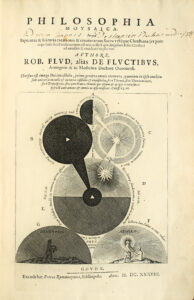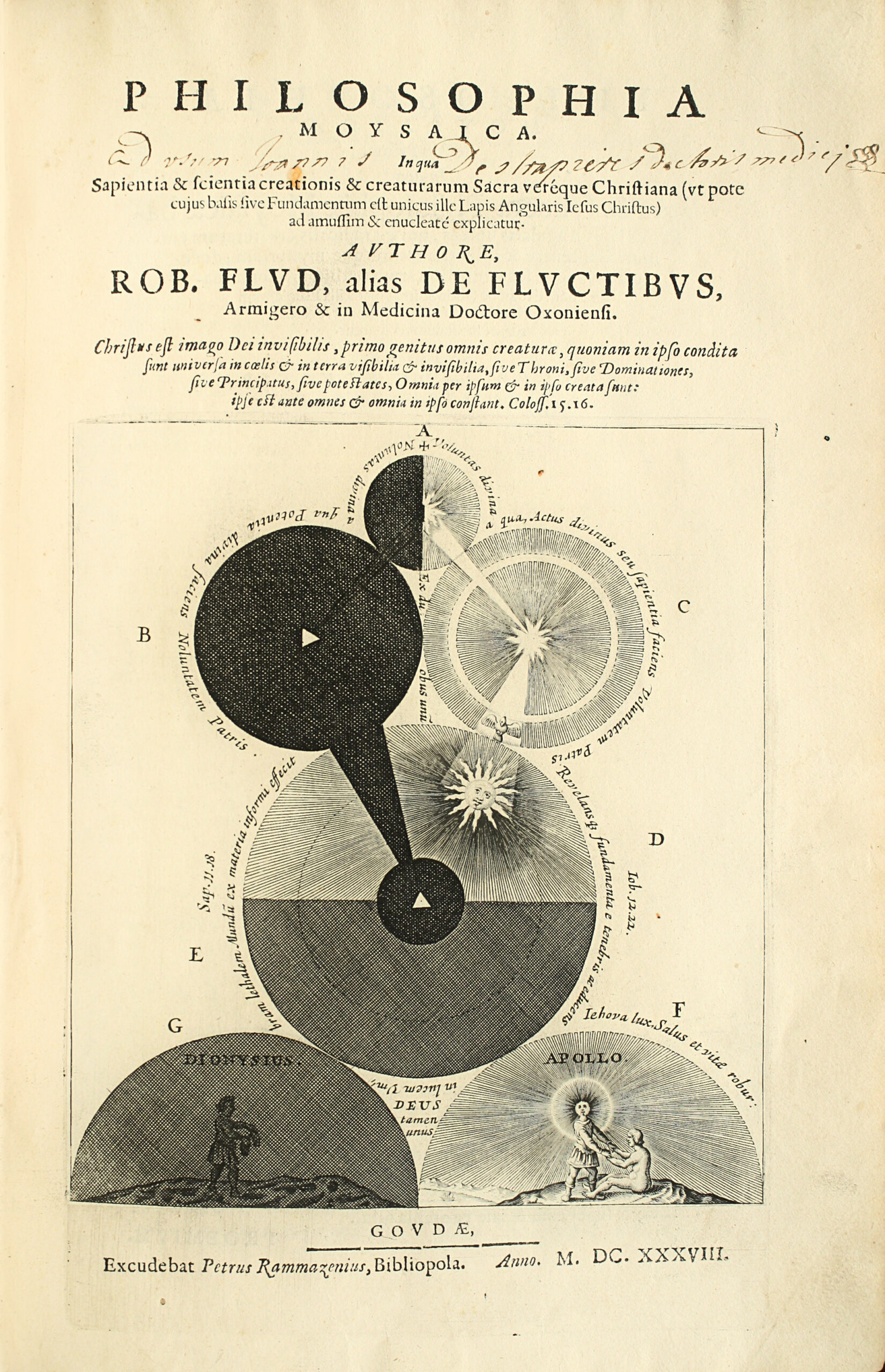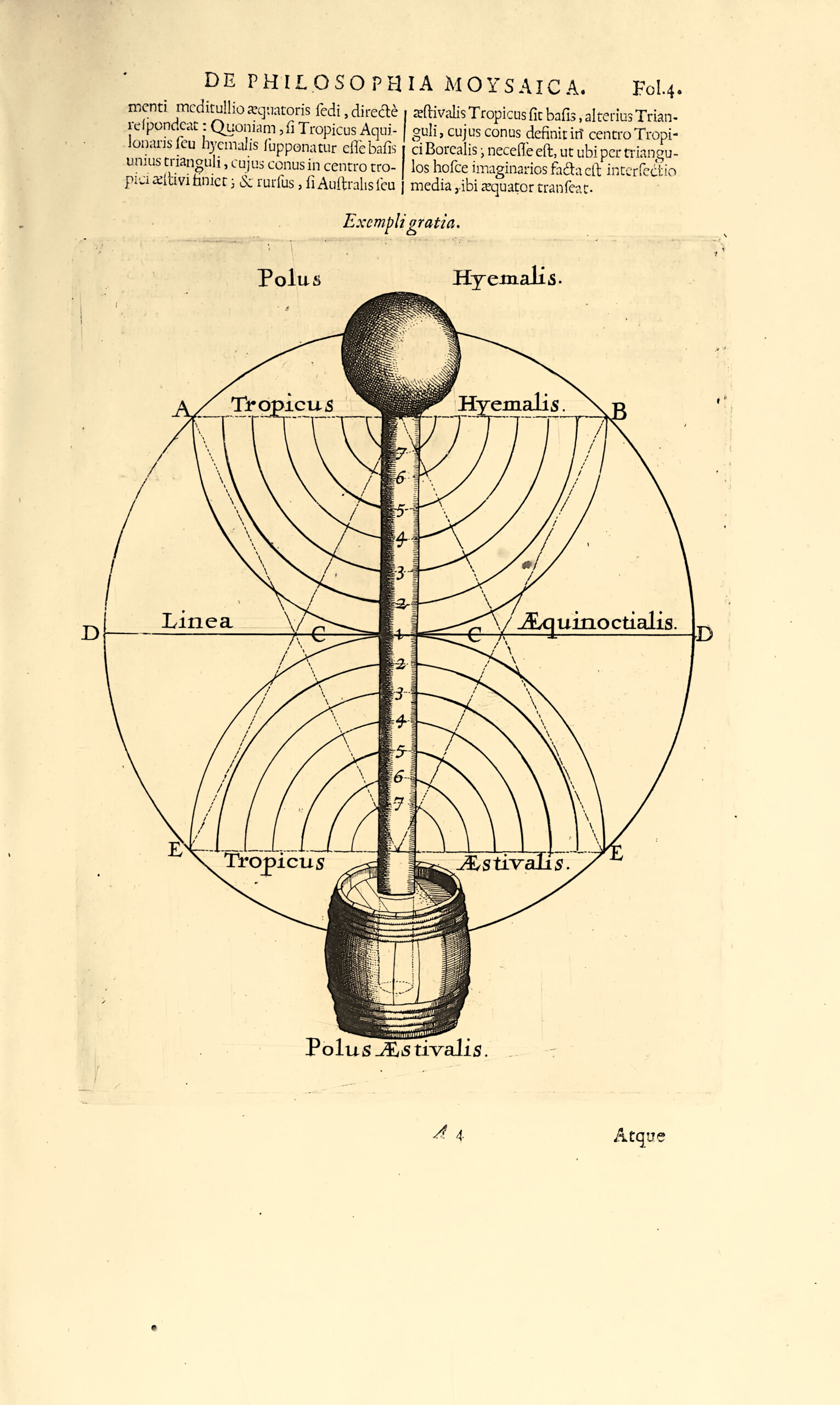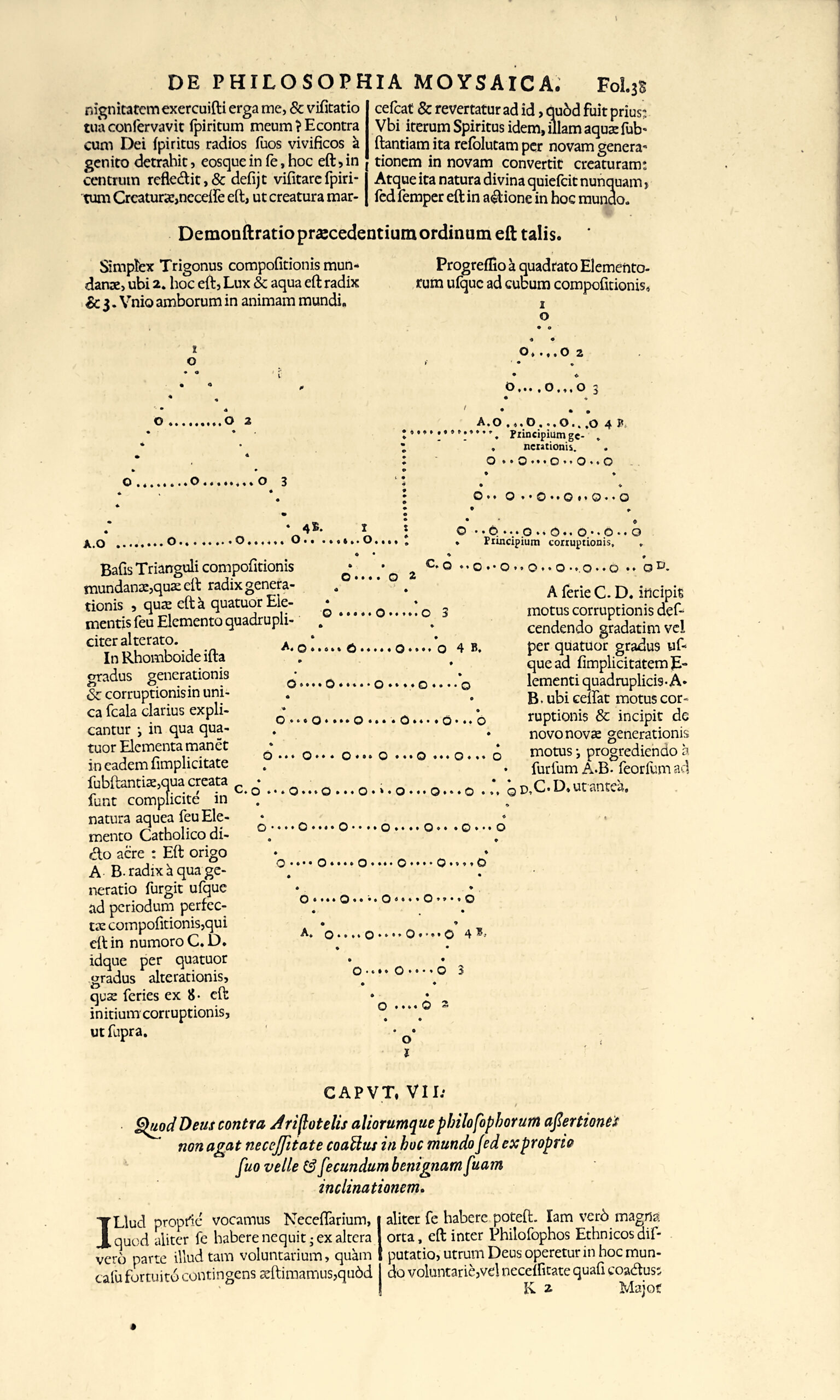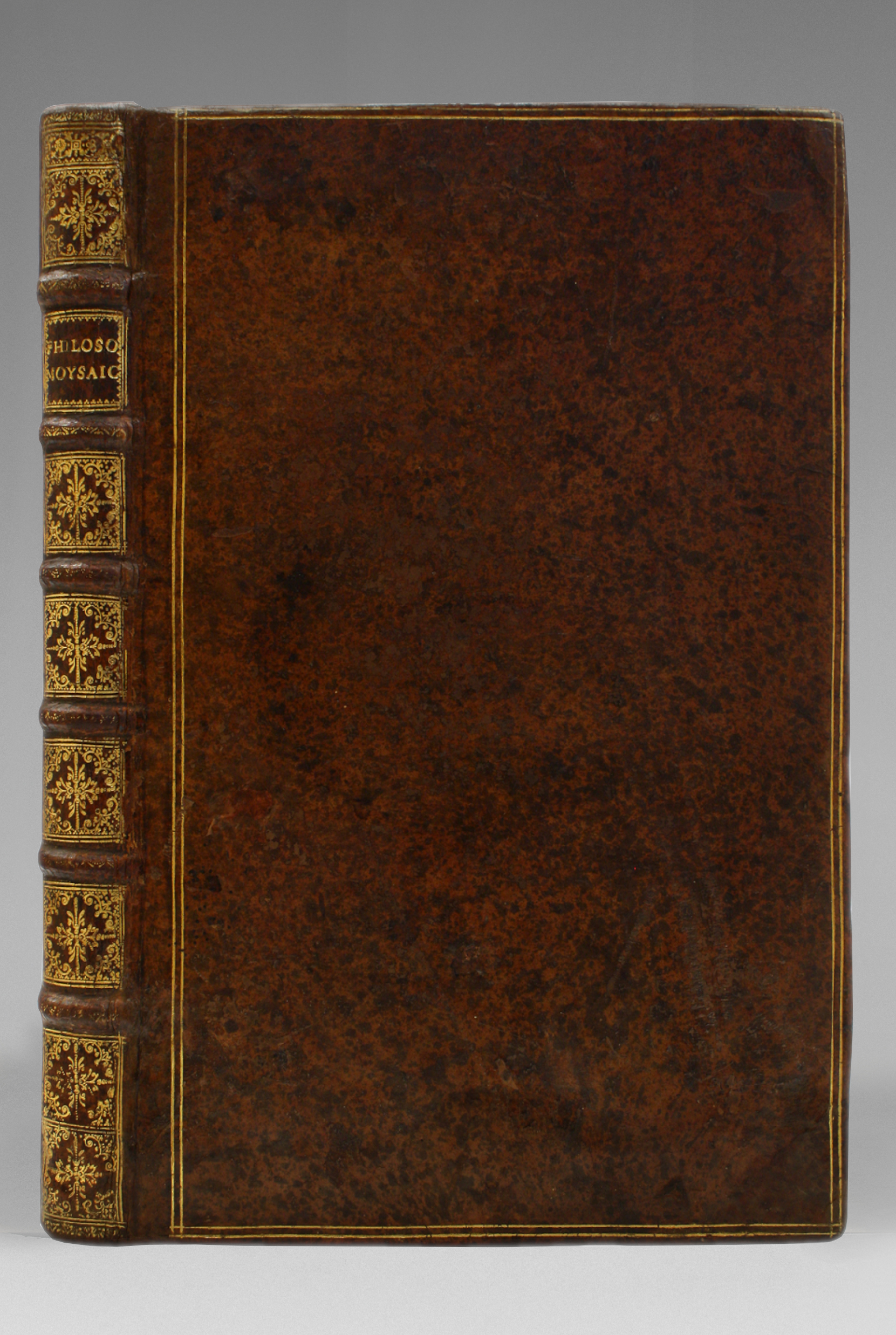Goudae, Petrus Rammazenius, 1638.
Grand in-4 de (4) ff. y compris le titre gravé, 144 ff. (numérotés 152 par erreur) ; 30 ff., (1) f. d’errata relié entre les ff.28 et 29, nombreuses gravures dans le texte. Relié en plein veau brun moucheté de l’époque, double filet doré encadrant les plats, dos à nerfs orné de fleurons dorés, tranches rouges sur marbrures. Reliure de l’époque.
317 x 195 mm.
Édition originale posthume du dernier essai de Robert Fludd traitant de la Création.
Sir William Osler, Biblotheca Osleriana : A catalogue of books illustrating the history of medecine and science, n°2629 ; DSB V, 47ff. – Ferguson I, 284. – Wheeler Gift 112-113. – Mottelay S. 554. – Gardner 237 & 236. – Wellcome I, 2331 & 2332. – Poggendorff I, 763 (nur Tl. I).
Dans son ouvrage, Robert Fludd (1574-1638), l’un des plus fameux philosophes et alchimistes anglais, démontre l’égalité entre le Soleil – source de lumière et de vie – et Dieu.
‘In the first half of the seventeenth century [Fludd] was one of England’s best known philosophers. Certainly few Englishmen of his day managed to draw the attention of such a distinguished group as Kepler, Mersenne, and Gassendi – each of whom wrote at least one work discussing, and usually complaining of, Fludd’s theories. To many Europeans he seemed the most prominent of all English philosophers of his day ‘Fludd, like most other Renaissance scientists, and certainly like all Paracelsians, had a bitter hatred of Aristotle even though Aristotelian influences are evident throughout his work. As his authority he preferred to turn to God’s two books of revelation – one, His written book, the Holy Scriptures, and the other, nature, God’s book of Creation Fludd stated that the origin of all things may be sought in the dark chaos (potential unity) from which arose the light (divine illumination or actual unity). He affirmed that there is true unity in this dichotomy since « Light was unto the eternall unity all one with darkness, though unto our weak capacities they are opposite in property ». Continuing, he explained that it was from the darkness or shades of the chaos through the divine light that there appeared the waters which are the pervasive matter of all other substances. This is then true Mosaic philosophy, which is built upon the three primary elements of darkness, light, and the waters or the Spirit of the Lord. And it is with the aid of this divine knowledge that we may bring order even out of the confusion found in the writings of the ancients on the subject. With a careful analysis of their texts Fludd showed that when Aristotle wrote of the prima materia, Plat of the hyle, Hermes of the umbra horrenda, Pythagoras of the « symbolical unity », and Hippocrates of the deformed chaos, they were all writing in reality of the darkness or the dark abyss of Moses. Similarly by some name or another all of these philosophers knew something of the Mosaic « light » and « waters ». However, in their interpretations they often varied far from the truth and it is to the works of Plato and the Pymander of Hermes that the true adept is urged to go for enlightenment’ (Debus, The English Paracelsians pp. 105-109).
Disciple de Paracelse, il défend surtout dans cet ouvrage célèbre la médecine magnétique, qui le mène à la médecine transplantatoire : Fludd expose ainsi les vertus de la transplantation d’une maladie entre les hommes, les animaux et les végétaux.
L’édition comprend in fine la réponse de Fludd à la réfutation de cet ouvrage publiée par le prêtre écossais Foster : Responsum ad Hoplocrisma-Spongum M. Fosteri (Ibid., id., 1638 – 30 ff.).
L’ouvrage est illustré d’un titre gravé sur cuivre (répété en tête de la deuxième partie) et d’environ 30 gravures dans le texte dont 4 gravures sur cuivre.
Bel exemplaire conservé dans sa reliure de l’époque.
Provenance : A N. Brugière de Lamotte (ex-libris gravé) et ex-libris manuscrit de l’époque sur le titre.
